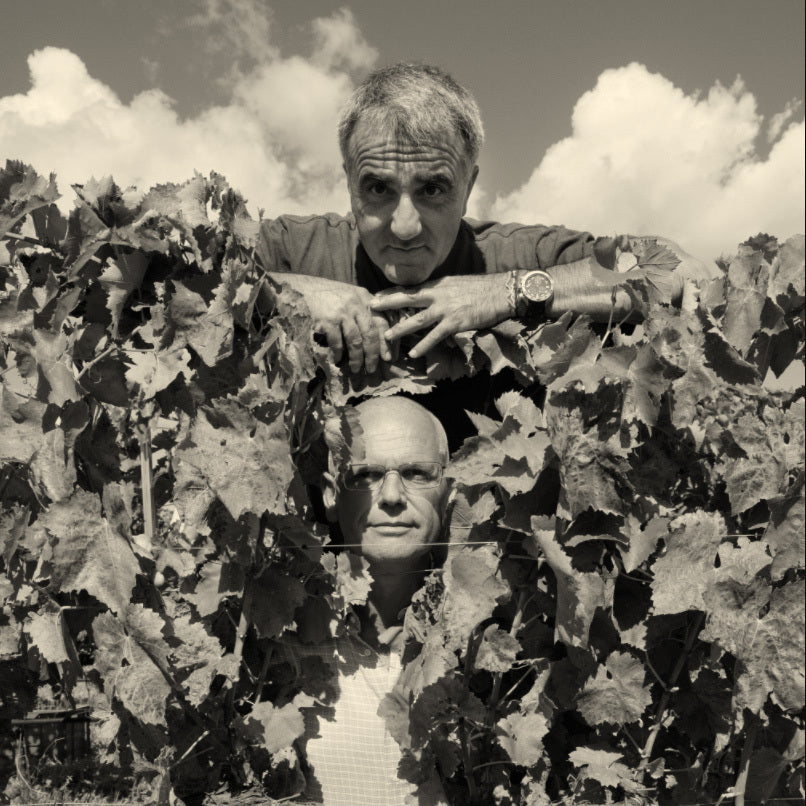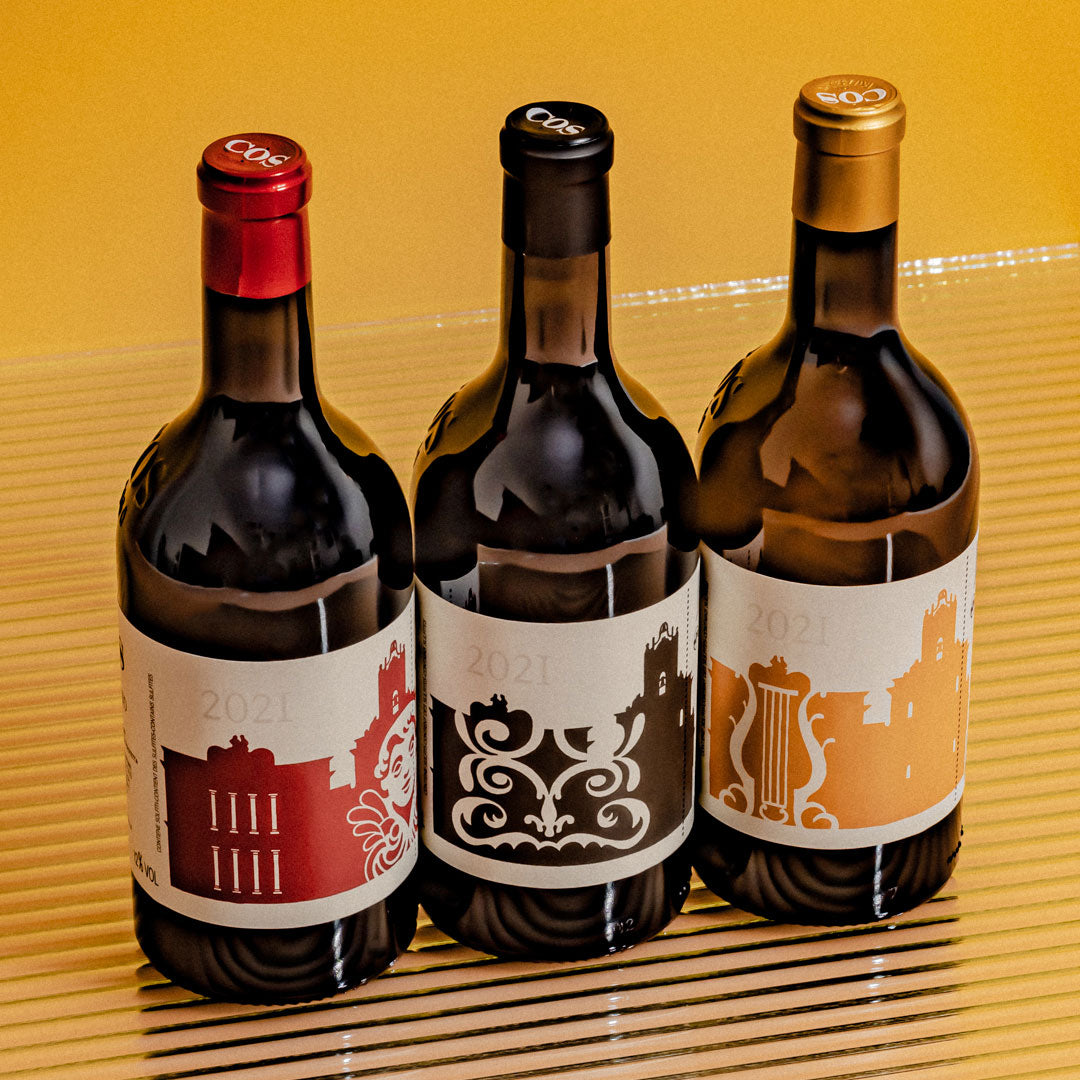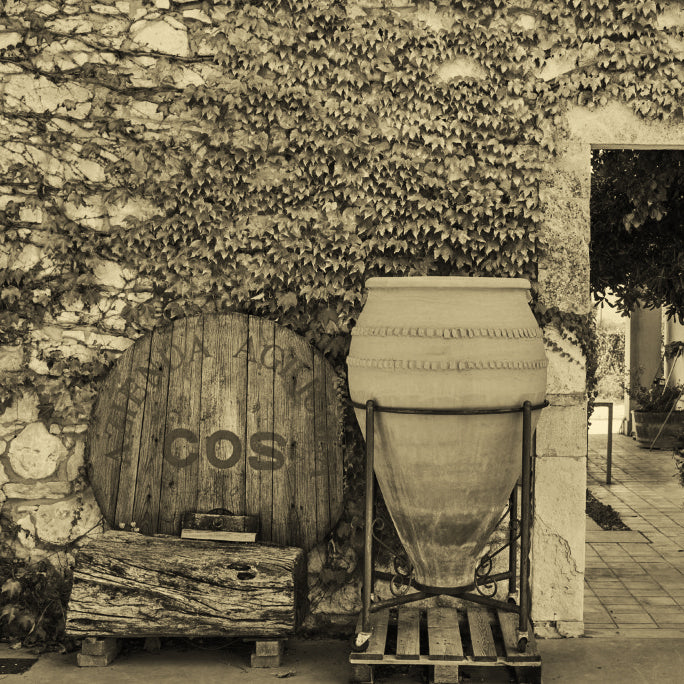COS

Out With The New, In With The Ancient.
COS are one of our favourite Italian producers, hands down. However, their practices and philosophy is quite different to what is generally expected from Sicilian wine producers, especially back in 1980 when it was first founded. This is because they champion organic and biodynamic farming, as well as terracotta amphoras for ageing, making wine as naturally as possible.
Who would have thought that taking inspiration from ancient techniques would be considered so modern? The winery's success suggests that sometimes the old way is the best way.

Winemakers: C.O.S.
Three friends founded COS in 1980, taking the first letter of their last names to create the acronym. Gianbatista Cilia, Giusto Occhipinti and Cirino Strano were students experimenting in their parents’ vineyards, adapting ancient winemaking practices including biodynamics, instead of conforming to the general Sicilian winemaking methods of the time.
While the ‘S’ eventually opted to dedicate himself completely to his medical profession, the ‘C’ and ‘O’ have continued with the brand and stayed true to the same philosophy that began 40 years ago. In the years since, they’ve become one of Sicily’s most famous wineries for producing wines that go against the region’s type.
While the ‘S’ eventually opted to dedicate himself completely to his medical profession, the ‘C’ and ‘O’ have continued with the brand and stayed true to the same philosophy that began 40 years ago. In the years since, they’ve become one of Sicily’s most famous wineries for producing wines that go against the region’s type.
WINEMAKING & PHILOSOPHY
COS are located at the farthest tip of South-Eastern Sicily, in the DOCG region of Vittoria. The winemakers liken the land to Africa in both climate, typography and vegetation, specialising in olive, carob, almond trees and vines. Given the DOCG classification, COS does produce the varieties of the region, with Frappato, Nero d’Avola, Gercanico and Inzolia all within their arsenal. COS’s biodynamic and organic focus give them an edge in the area in terms of viticulture – Sicily isn’t overwhelmingly renowned for following this particular school of thought. More to COS’s advantage, we say.
Amphora is a terracotta jar with two vertical handles and a pointed bottom used in ancient times to store foodstuffs, including wine. It’s essentially the typical image you think of for the term ‘ancient jar’.
Amphora is a terracotta jar with two vertical handles and a pointed bottom used in ancient times to store foodstuffs, including wine. It’s essentially the typical image you think of for the term ‘ancient jar’.
Amphora plays a pivotal role in the winemaking process for COS, being favoured for fermentation and maturation over more modern winemaking vessels, including stainless steel and oak. Team this with the holistic, ethical and ecological viticulture philosophy biodynamics – the scientific understanding that by embracing the spirit of the land, the crop will improve – and you have a very un-Sicilian winemaking philosophy. Not to mention, this all happened 40 years ago in 1980, long before the natural wine movement took off globally.
COS were trailblazers for the movement and have become industry leaders in the space. To say 'deservedly so' would be an understatement.
COS were trailblazers for the movement and have become industry leaders in the space. To say 'deservedly so' would be an understatement.

“The winery’s success suggests that sometimes the old way is the best way.”